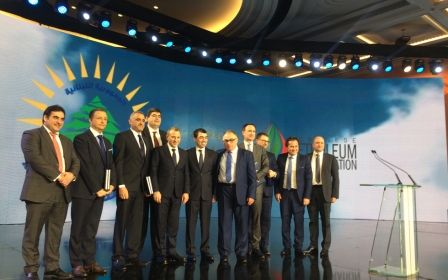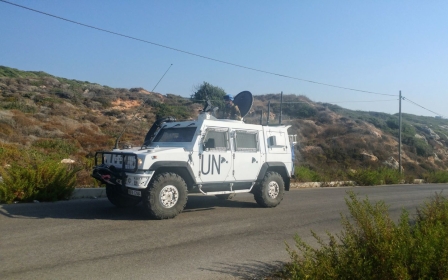Saudi Arabia invites Lebanon's Hariri to visit for first time since 2017 crisis
Lebanon's Prime Minister Saad al-Hariri has been invited to Saudi Arabia, his office said on Monday, setting the stage for his first visit since he abruptly resigned there in November.
The prime minister had reportedly quit under Saudi pressure. Lebanese officials and Western diplomats accused Saudi Arabia of kidnapping Hariri, a charge denied by Riyadh and Hariri himself.
He returned home weeks later and withdrew his resignation, drawing a line under the crisis that had raised fears for Lebanon's economic and political stability.
Hariri received the invitation from Saudi envoy Nizar al-Aloula on Monday and would go as soon as possible, the press office said without elaborating.
Last year’s crisis thrust Lebanon onto the frontline of a Middle East contest for power pitting a Saudi-led bloc against Iran and its allies, including the Lebanese Hezbollah movement.
"Saudi Arabia's main goal is for Lebanon to be its own master, and it is keen on Lebanon's full independence," Hariri said after meeting Aloula in Beirut on Monday.
After his return, Hariri's coalition government, which includes Hezbollah, reaffirmed a state policy of staying out of conflicts in the Arab world.
Saudi Arabia accuses the heavily armed Hezbollah of waging war across the Middle East as agents of Iran.
Lebanon declared its policy of "dissociation" in 2012 to keep the deeply divided state out of regional conflicts such as the war in neighbouring Syria.
Still, Hezbollah has sent thousands of its fighters across the border to support Syrian President Bashar al-Assad. However, the group denies Saudi accusations that it militarily support Yemen’s Houthi rebels.
Aloula also visited President Michel Aoun, a close ally of Hezbollah, on Monday. Aoun stressed to the Saudi envoy the importance of Arab unity and Beirut’s wish for warm ties with Riyadh, according to Lebanon’s National News Agency.
Middle East Eye propose une couverture et une analyse indépendantes et incomparables du Moyen-Orient, de l’Afrique du Nord et d’autres régions du monde. Pour en savoir plus sur la reprise de ce contenu et les frais qui s’appliquent, veuillez remplir ce formulaire [en anglais]. Pour en savoir plus sur MEE, cliquez ici [en anglais].




